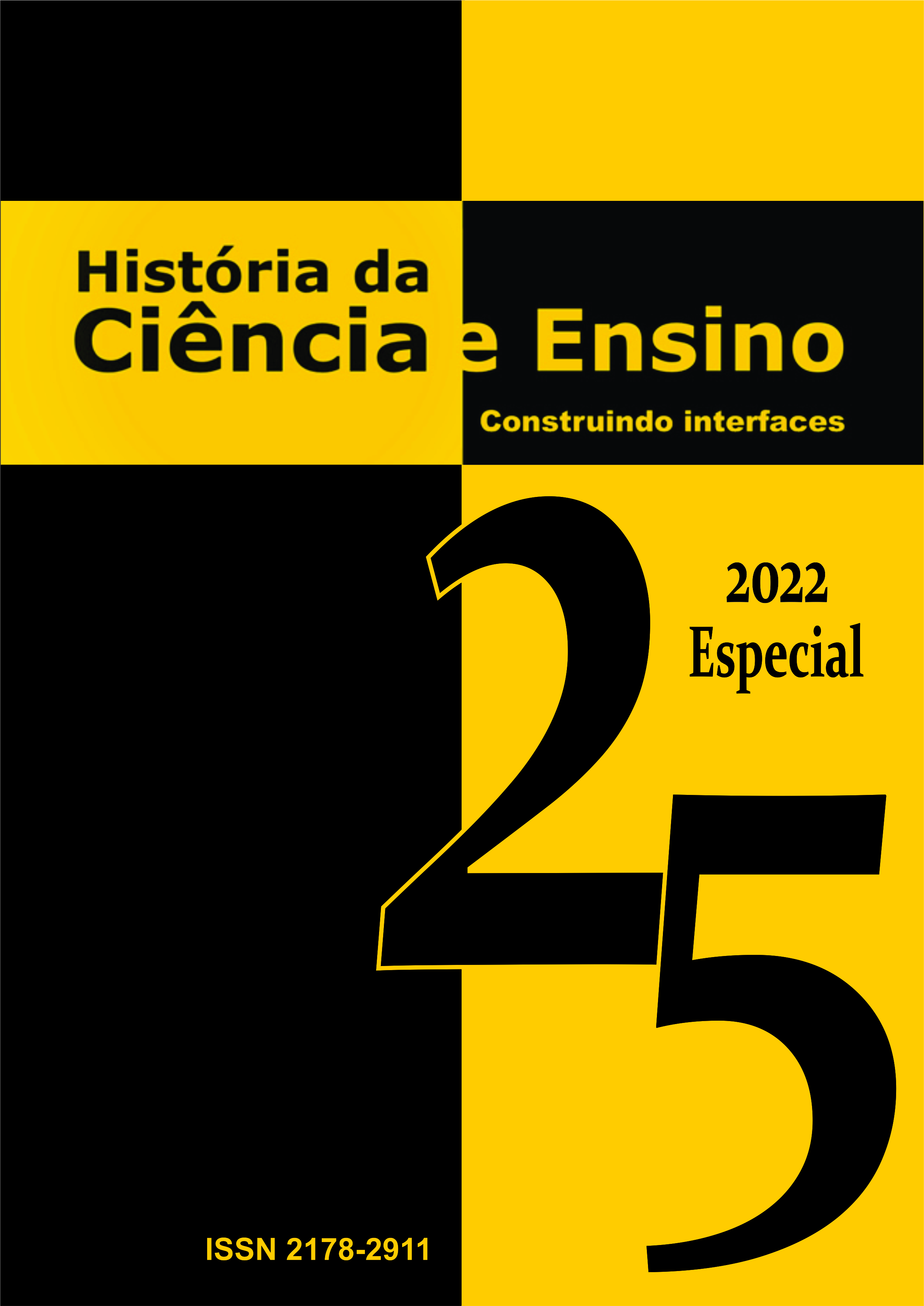História da ciência, educação STEAM e literacia científica: possíveis intersecções
DOI:
https://doi.org/10.23925/2178-2911.2022v25espp196-208Resumo
Resumo
Este trabalho insere-se no âmbito da construção de uma tese de doutoramento em educação, tendo como objetivo investigar de que modo atividades envolvendo a história da ciência e abordagens STEAM contribuem para a aquisição de uma melhor literacia científica (letramento científico). Através de uma revisão sistematizada da literatura, pretende-se analisar trabalhos publicados a partir de 2010 (nas plataformas SciELO e SCOPUS) que relacionem a história da ciência e/ou a educação STEAM à melhoria da literacia científica dos alunos em busca de respostas às seguintes questões: (i) Qual o significado de literacia científica e qual sua importância para as sociedades do século XXI? (ii) Quais os conceitos envolvidos, as características e as contribuições de atividades utilizando (a) a história da ciência e; (b) educação STEAM para a melhoria da literacia científica de jovens. Os resultados sugerem que a educação STEAM pode ser uma metodologia que responde aos anseios gerais por uma educação multidisciplinar aplicada através de projetos e a história da ciência tem o potencial de poder ser o meio condutor dessa metodologia, apresentando uma contextualização inicial, motivando alunos que não tenham afinidade com áreas STEAM e/ou contribuindo para a compreensão de aspetos relacionados à natureza da ciência, para o desenvolvimento do pensamento crítico e de outras habilidades e competências relacionadas à literacia científica.
Palavras-chave: História da ciência, educação STEAM, literacia científica
Abstract
This work is part of a doctoral thesis in education in development, aiming to investigate how activities involving the history of science and STEAM approaches contribute to the acquisition of a better scientific literacy (scientific literacy). Through a systematized literature review, we intend to analyze papers published from 2010 onwards (in SciELO and SCOPUS platforms) that relate the history of science and/or STEAM education to the improvement of students' scientific literacy in search of answers to the following questions: (i) What is the meaning of scientific literacy and what is its importance for 21st century societies? (ii) What are the concepts involved, the characteristics and the contributions of activities using (a) the history of science and; (b) STEAM education to the improvement of young people's scientific literacy. The results suggest that STEAM education can be a methodology that responds to the general yearning for a multidisciplinary education applied through projects, and the history of science has the potential to be the conductor of this methodology, presenting an initial contextualization, motivating students who do not have affinity with STEAM areas and/or contributing to the understanding of aspects related to the nature of science, the development of critical thinking and other skills and competences related to scientific literacy.
Keywords: History of science, STEAM education, scientific literacy


